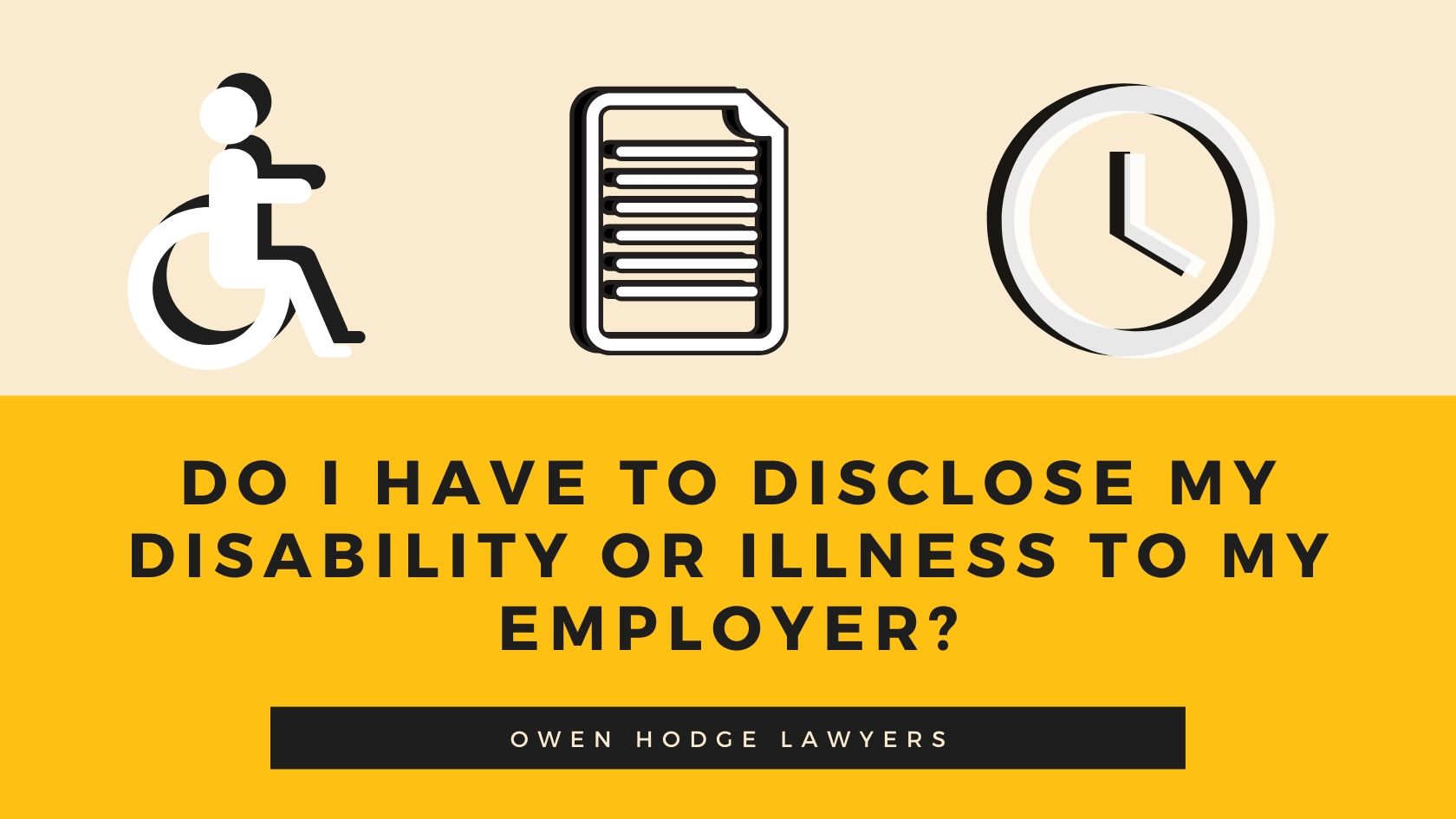 Here is the dilemma faced by many employees who have “hidden” or “invisible” disabilities: Are you better off disclosing the existence of a disability or illness to your employer in order to qualify for workplace accommodations or will that open the door to discrimination?
Here is the dilemma faced by many employees who have “hidden” or “invisible” disabilities: Are you better off disclosing the existence of a disability or illness to your employer in order to qualify for workplace accommodations or will that open the door to discrimination?
This is a tricky task that very much depends on individual circumstances. Workplace discrimination on the basis of disability or illness is illegal in NSW. But that doesn’t mean it does not happen. And people with disabilities generally want to work and must work, just like everyone else.
How should you make this decision? A little background may be helpful and some expert legal advice can make an important difference.
Do I have to disclose my illness or disability?
First of all, it is important to remember that, even though you may be acutely aware of your health issues, they may not be obvious to anyone else. Among the most common invisible disabilities are psychiatric disabilities, HIV/AIDS, diabetes and chronic fatigue syndrome, among others.
The general rule, arising from laws protecting the privacy of personal information, is that you need not divulge information about a disability or illness to your employer or a prospective employer. The major exception is for conditions that relate to your ability to perform the normal duties of the job.
What if I choose not to disclose?
If you are untruthful on your application about your ability to do a job, you may end up being dismissed. The laws protecting privacy and prohibiting discrimination on the basis of disability are no protection from this.
From a practical perspective, if you fail to disclose a pre-existing injury or illness that might affect your ability to perform the normal duties of a job, you may be ineligible for workers’ compensation if your condition recurs or gets worse because of your employment. You can also hardly ask for reasonable accommodations for a condition that may periodically make it difficult for you to perform ancillary job functions unless you disclose the underlying condition.
If you err on the side of nondisclosure, the law may not offer much help if you suffer adverse consequences. If you err on the side of disclosure, however, an unscrupulous employer could ignore the law and refuse to consider you for a position, make life so difficult or unpleasant that you eventually quit, or even fire you. Then you need a lawyer.
What if I do disclose a disability or illness, but end up being discriminated against?
Spotting disability discrimination is not always easy. Discrimination can be direct, as when an employer does something overt. It may also be indirect, as when an employer imposes a condition or requirement that appears to affect everybody equally, but effectively disadvantages only people with a particular condition.
An employer may also be guilty of disability discrimination if it fails to intervene in or correct the discriminatory behaviour of a co-worker. The same may be true if pre-employment inquiries target only particular applicants – for example if a prospective employer asks only applicants who appear to be overweight whether they have a family history of diabetes.
On the other hand, some forms of discrimination are entirely legal. An employer may decline to hire or dismiss someone who cannot perform essential tasks of the job or if making special adjustments would cause unjustifiable hardship on the business. An employer may also make health or disability-based employment decisions for legitimate safety reasons. The decision may be motivated by concern for the employee, co-workers or customers. It can be a close question whether the employer’s conduct is prohibited by law or not.
If you have questions about the pros and cons of disclosing your disability to your employer and the risk or reality of discrimination, please call the attorneys at Owen Hodge Lawyers to schedule a consultation. Our phone number is 1800 770 780, and we look forward to working with you.
